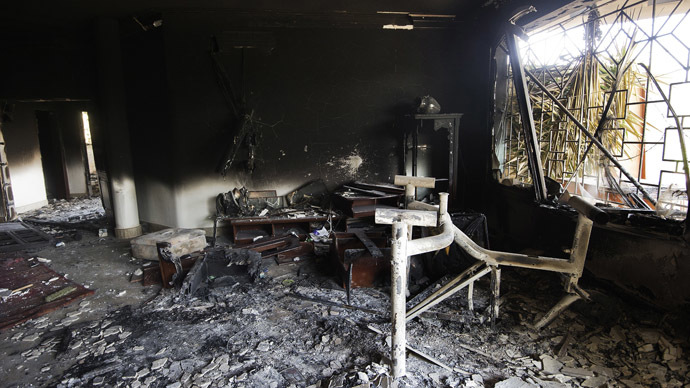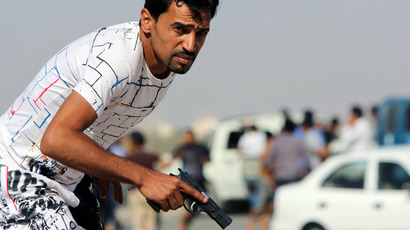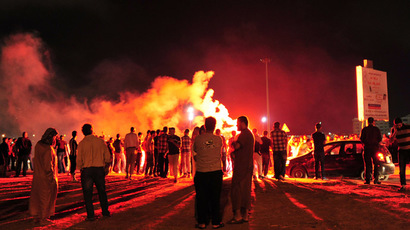US charges Libyan militant in Benghazi attack - reports

Reports have emerged of the first suspect to be charged for last year’s attack on a US diplomatic compound in Benghazi that left four people dead, including the American ambassador to Libya.
Ahmed Abu Khattalah is accused of having played a key role in the
attack, according to officials who spoke to US media, although
authorities did not confirm whether he had yet been arrested. The
US Department of Justice has so far declined to comment on the
matter.
Khattalah is described as the founder of Ansar al-Sharia, a
Libyan extremist group which first attracted attention in October
of last year when it was revealed that Khattalah had been present
at the US consulate compound at the time of its attack.
For months investigators have believed that Khattalah was
involved in the September 11, 2012 attack, although the specific
charges against him remain undisclosed as they were made in a
sealed complaint.
Critics of the ongoing investigation - many of whom are
Republican members of Congress - have pointed to a lack of
progress in addition to purportedly misleading explanations of
the incident in the days following the attack.
The US sent a team of FBI agents to launch a probe into the
attack, although they have been mainly working out of the Libyan
capital city of Tripoli - some 400 miles away from Benghazi.
Security officials fear that moves by Libya’s police force
against radical Islamists or Al-Qaeda sympathizers in Benghazi
could create a backlash.

The Ansar al-Sharia group has been a focus of the joint US-Libyan
investigation since intelligence indicated that members were in
contact with Al-Qaeda leaders in Northern Africa immediately
after the attack on the Benghazi consulate, reportedly even
bragging about the incident.
The American team in Tripoli was said to be working primarily
with the newly formed Libyan intelligence agency under former US
citizen Salem al-Hasi - a political dissident who for decades
lived in the Atlanta area and taught Arabic to US soldiers,
according to several Libyan officials who spoke with The Wall
Street Journal last year.
Although Khattalah is the only known individual charged so far by
investigators, officials have indicated that other charges have
been filed - with around half a dozen additional people currently
suspected of involvement in the attack.
According to NBC News, the charges now filed under seal could
generate a political battle, with Republicans likely pushing to
have Khattalah treated as an enemy combatant. The Obama
administration is thought to be seeking to bring him back to the
US for trial in a civilian court.
Libyan officials said last year that evidence of Abu Khattalah's
presence at the consulate at the time of the attack came from
witness statements, as well as from raids against Ansar al-Sharia
members' homes.
"There's no doubt the sheik was
there," said one of the officials to The Wall Street
Journal, referring to Khattalah’s religious title used by his
followers. "If the sheik was
there, then the sheik was giving commands. That's how the group
operates."














